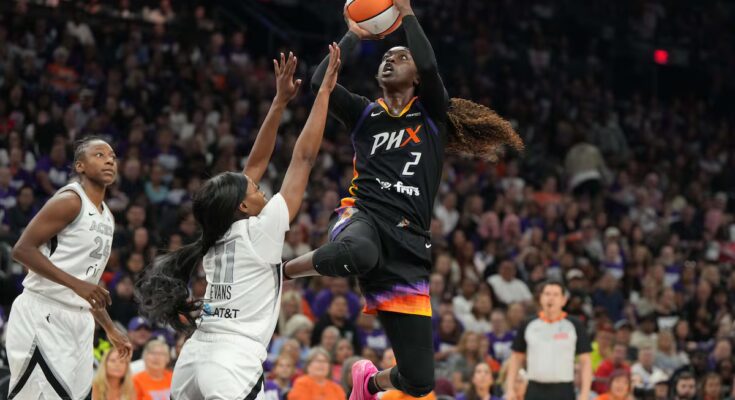There are two infinite things: human stupidity and the ability of Americans to turn any issue into a business. The latest and craziest: right now in the United States there are those who bet on the menstruation of WNBA players, as published in the media The wired.
It all started when a guy named FadeMeBets with access to Google Calendar and a menstrual app started “predicting” the performance drops of female players based on the day of their cycle they are in: menstruation, ovulation or luteal phase, which is the period of time that occurs after ovulation and lasts until menstruation. He called the money from those bets blood money. Come on, blood money. Fine, thin, elegant, as if the Wolf of Wall Street studied gynecology in his free time.
What are bettors’ menstrual cycle prediction methods based on? Well, in the hypotheses, logically. Some players who are at the end of their luteal phase may reportedly see their cardiovascular endurance, strength or aerobic capacity decline, despite the fact that every woman has a completely different menstrual cycle and experiences her period in a completely different way, although there are many factors that make periods unpredictable, such as stress.
The main problem of this new misogynistic story is more than evident: associating menstruation with lower performance reinforces the idea that the female body is less reliable, more fragile, more emotional or less professional. But beyond that, reducing an athlete to a “period phase” is still a new (and original, yes) box in the objectification of the female body: making women’s bodies and health a topic to talk about with primitive camaraderie and in which to invest end-of-month savings. The ancient tradition of checking, measuring and commenting on the female body as if it were a BOE regulation, something in the public domain.
All of this could be covered with a scientific layer: “Really what we want is to understand how female biology affects sports performance, because there are studies that show that menstruation can affect that performance.” But everything has a much simpler background: in the same way as a voyeur They don’t look at buildings, but at the people who live in them, bettors don’t look at women as an object of empirical interest, but as a bet, something that can give them an economic return. “The good thing, but also the bad thing, is that it attracts more people to watch the WNBA, but on the other hand, it’s usually just bettors,” user FadeMeBets commented in a post. Who knew that betting attracted gamblers.
But let’s try to see the positive side of the matter. Perhaps, beyond the money or the obvious objectification, the bettors are men sincerely interested in the WNBA and the performances of its athletes, perhaps they are even sincerely interested in our menstrual cycles, our follicle-stimulating hormones, our estradiol or our progesterone, perhaps there are players who now discover what endometriosis is or wonder why in many hospitals there are still no specialized departments for this chronic disease, perhaps they even stop to talk about the rule as if it were Voldemort, the unspeakable. But that’s likely too much to assume and we’ll soon find ourselves in betting shops with PMS machines. This is more complex if possible.



